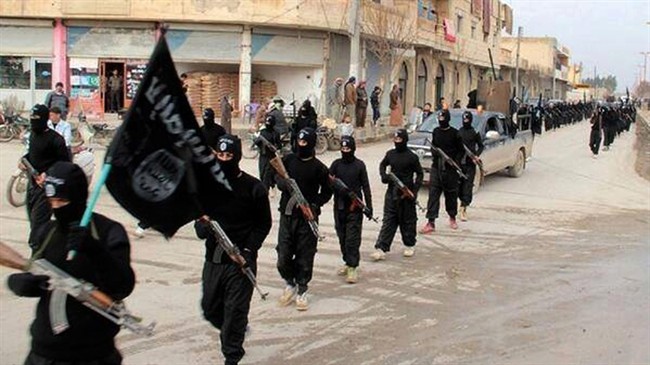A series of recent claims that ISIS has used chemical weapons against its adversaries in Iraq and Syria should be taken seriously and be investigated, a Canadian defence studies expert said.

Walter Dorn, a professor at the Royal Military College of Canada who assisted “with the negotiation, ratification and implementation of the 1993 Chemical Weapons Convention,” said “evidence is mounting” that the jihadist group has carried out chemical attacks, likely using industrial chemicals.
READ MORE: Former U.S. commander says the Iraqi army is in crisis
In at least three attacks in late September ISIS is believed to have used chlorine against Iraqi fighters.
According to the Washington Post, 11 Iraqi officers were taken to a hospital following a late afternoon attack on Sept. 15 in the town of Duluiyah, just 97 kilometres north of Baghdad.
The soldiers were diagnosed as having been poisoned by chlorine gas, the Post reported on Oct. 23.
“It was a strange explosion. We saw a yellow smoke in the sky,” the Washington Post cited Lt. Khairalla al-Jabbour saying. “I felt suffocated. … I was throwing up and couldn’t breathe.”
All 11 men were treated with oxygen and hydrocortisone, before being released the next day, the Post reported.
Citing an unnamed Iraqi Defense Ministry official, the Post reported the explosion involved “a bomb rigged with chlorine canisters.”
According to NBC News were two similar attacks on Sept. 21, in the Anbar province town of Saqlawyah, and Sept. 29, again in Duluiyah. Both were alleged to have involved chlorine cylinders.
READ MORE: Iraqi officials say U.S. airstrike wounds ISIS leader
He said there should be a call for an international investigation and believes the Iraqi government would welcome it.
But, Dorn added Iraq should make efforts to limit the possibility of ISIS seizing industrial chemicals that could be weaponized.
“I think the Iraqi society will be much more careful about… transporting chlorine, even if they need it in industrial processes, because they’re so vulnerable.”
Two separate attacks in the northern Syrian city of Kobani, which has become a key battleground between Kurdish fighters and ISIS, are also alleged to have involved chemical weapons.
READ MORE: Rights group accuses Islamic State militants of torturing Kurdish children
Idris Nassan, a spokesperson for the Kurdish militias fighting to maintain control of Kobani, suggested a “poisonous attack of some sort, maybe phosphorus or something,” was carried out on Oct. 21.
Nassan told NBC News approximately 20 people were treated for symptoms including “breathing problems, bleeding from the eyes, skin burns and vomiting” after an explosion that night.
Dr. Walat Omar told the Guardian, on Oct. 24, patients “reported a bad smell which produced some kind of allergic reaction.” He also suspected some form of chemical weapon.
“Some had red patches and blisters on their skins, others had difficulties breathing and others were vomiting, with painful throats, and others with burning eyes and noses. There was one patient, all his body was covered in red patches and blisters,” he told the Guardian.
According to NBC News, Nassan said samples had been taken and sent to Turkey for analysis.
The claims followed a report from an Israeli think tank that ISIS may have used a blister agent, such as mustard gas, in the vicinity of Kobani on July 12.
READ MORE:What is known about the ISIS chemical weapons claims
Both alleged instances raised concerns about ISIS having taken control of areas in Iraq where there were leftover stockpiles of chemical weapons — in particular, from the Muthanna Chemical Weapons Complex where Iraq produced chemical agents, including mustard, sarin, and VX, in the 1980s.
Although much of the plant was incapacitated during Operation Desert Storm and later converted into a chemical weapons destruction facility, bunkers at the site were believed to hold at least 2,500 rockets or remains of rockets containing chemical agents, according to BBC.
ISIS took control of the Muthanna complex, about 70 kilometres northwest of Baghdad, in June, during its conquest of Iraqi territory.
Dorn said any remaining materials that were sealed inside the Muthanna complex are likely to have degraded over time and are probably useless for any military purpose.
He explained any chemicals uncovered and taken from the complex would likely pose just as much a risk to ISIS as it would any potential targets.



Comments